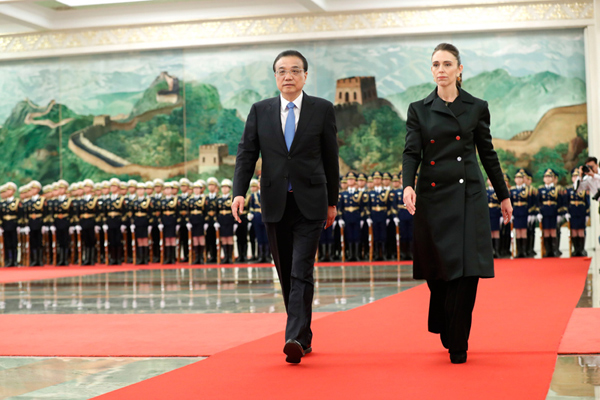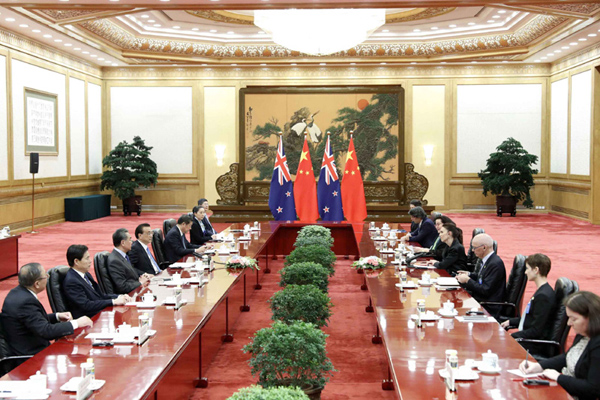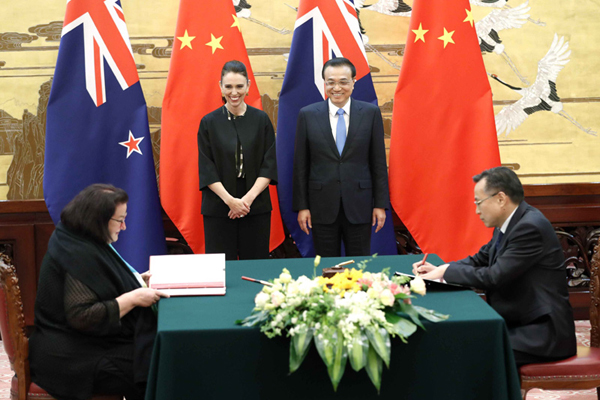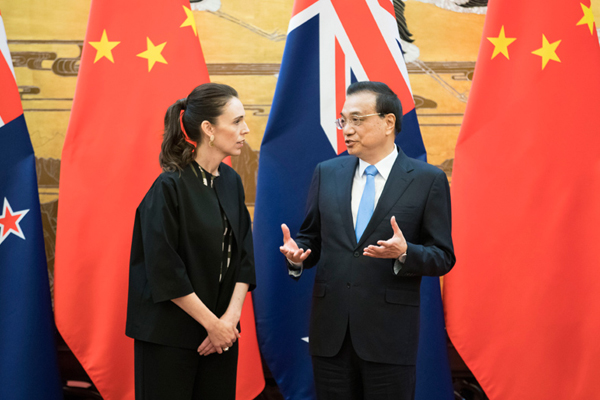
Premier Li Keqiang said he hopes China and New Zealand can create a fair, just, transparent, convenient and nondiscriminatory business environment for mutual investment of enterprises from both countries, at the meeting with New Zealand Prime Minister Jacinda Ardern at the Great Hall of the People on April 1.
Ardern responded that Chinese enterprises are welcome to invest in New Zealand, and all foreign companies will enjoy a good business environment and be treated equally in New Zealand.
Ardern mentioned Huawei Technologies while discussing internet security. She stressed that New Zealand independently decides on recent legislations on telecommunication interception and data security, in order to minimize any risks that its telecommunication industry might face when using devices from Huawei and other companies.
She added, as she had told the media before, Huawei is not banned in New Zealand, and its technologies and devices play an important role in building her country’s telecom infrastructure. Also, within the framework of related programs, Huawei is an important participant. New Zealand is willing to maintain contact with the Chinese side in the legislation process, said Ardern.
Premier Li stressed that in supporting free and fair trade, all countries and enterprises should be treated equally.
Under the current circumstances, in which the rules-based free trade system is being disturbed or even impacted, if fair competition and the nondiscriminatory principle are not protected, free trade may be undermined, the Premier said.
Premier Li reiterated that, at a news conference during the two sessions this year, journalists asked whether the Chinese government forced enterprises to monitor other countries, and he clearly answered, China did not and will not do that in the future. Chinese companies must obey local laws and regulations when investing in foreign countries. In return, foreign governments should treat them equally.
Ardern said law enforcement should remain fair and just, and that principle will be followed when enforcing laws on foreign investment in New Zealand.
New Zealand is the first developed country to sign a free trade agreement with China, and the two countries launched negotiations on upgrading the agreement in 2016. Ardern said that since the agreement was signed, bilateral trade volume has doubled, and she hopes to further promote the negotiations.
Currently, protectionism and unilateralism are on the rise, and if the negotiation is successful, a strong signal will be delivered to the world that both China and New Zealand are firm supporters of open markets, rules-based multilateralism and multilateral trading system, Ardern said.
Premier Li said the cooperation between China and New Zealand has always been at the forefront of China’s cooperation with Western countries. Efforts should be strengthened to advance negotiations on upgrading the free trade agreement, to deepen cooperation in agriculture, animal husbandry and other traditional areas, as well as to find more breakthroughs in mutually open markets.
New Zealand attaches great importance to free trade and will accelerate efforts to promote the negotiations, Ardern said.



